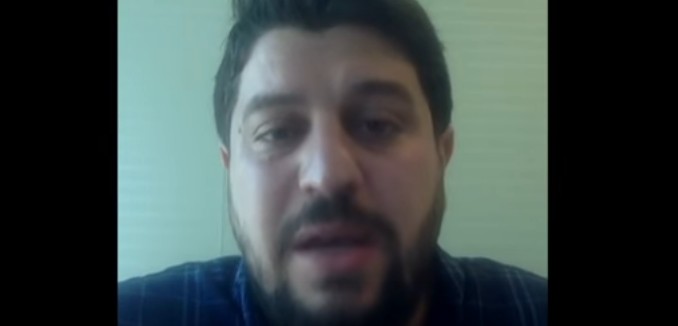A Palestinian author is hiding in an undisclosed location in the Middle East after his book was banned by the Palestinian Authority last month, NPR reported Saturday.
Abbad Yahya, 28, received death threats after his novel Crime in Ramallah was banned by the PA in February.
The novel centers on three young men in Ramallah, the seat of the Palestinian government, and how the murder of a woman affects their lives.
“I thought the book may raise some noise and provoke writers, intellectuals, or readers,” Yahya said. “But I was really shocked when I started to read what people are writing about me.”
The book features a gay character, Noor, who is viewed as treating the memory of the PA’s first president, Yasser Arafat, with disrespect.
Outraged Palestinians on Facebook called for Yahya to be lynched and outlets carrying the novel to be burned.
Crime in Ramallah was banned by the PA’s attorney general because it “contained indecent texts and terms that threaten morality and public decency, which could affect the population, in particular minors.”
Following the ban, PA police detained the book’s distributor, Fuad Akleek. “The police asked me, ‘Where did you get the books? Who did you distribute the books to? Where are your copies?'” Akleek recalled. “They told me the Palestinian Authority’s attorney general had banned the novel because it had decided that parts of it were immoral, especially for children. And I told them, it’s not a children’s book!”
The PA’s police also raided Khadr Ibrahim al-Bis’ bookstore and asked for all copies of the novel. “But I only had one left,” Bis said. “People had heard about the crackdown and bought 17 copies in just a few hours.”
Other critics of the book include Hamas and the head of the Palestinian Writer’s Union. A book club in Nablus was forced to cancel its discussion of Crime in Ramallah due to death threats.
“I think we are at a very dangerous place if we’re being pressured about what we should or should not read,” said Ala’a Qaraman, a member of the club. “No one can hold this book in public. You must put it in a bag or something. So it’s really like having a stash of drugs, something illegal, and you are hiding it.”
Yahya said he was surprised that the PA imposed censorship, noting, “In public, when they talk about Israel, when they talk to foreigners about human rights in Palestine, they try to appear like liberals.” However he indicated that the PA is beholden to religious elements that prompt it to adopt anti-democratic policies.
The author hopes to travel to Germany where he can accept a position as a “writer in exile” at the German PEN Center, a group that promotes freedom of expression.
The PA’s record on human rights and freedom of expression has frequently been criticized by international observers. In August, Human Rights Watch condemned the treatment of journalists by both Hamas and the PA, stating that their tactics led to a “chilling effect” on freedom of expression in the Palestinian territories. “Both Palestinian governments, operating independently, have apparently arrived at similar methods of harassment, intimidation and physical abuse of anyone who dares criticize them,” Sari Bashi, HRW’s Israel/Palestine director, said at the time.
A survey released by the Palestinian Center for Development and Media Freedoms in 2014 found that “80% of Palestinian journalists in the West Bank and Gaza practice self-censorship of their writing.” A poll published that same year by the Palestinian Center for Policy and Survey Research found that 70 percent of Palestinians did not feel that they could criticize the PA.
Suppression of free press is one more manifestation of the increasingly authoritarian rule of PA President Mahmoud Abbas.
Grant Rumley, a research fellow at the Foundation for Defense of Democracies, warned in May 2016 that if the West fails to challenge Abbas’ ever-growing corruption and autocratic rule, it “could have a devastating effect on the long-term prospects for a viable Palestinian state.”
[Photo: AP Archive / YouTube ]




